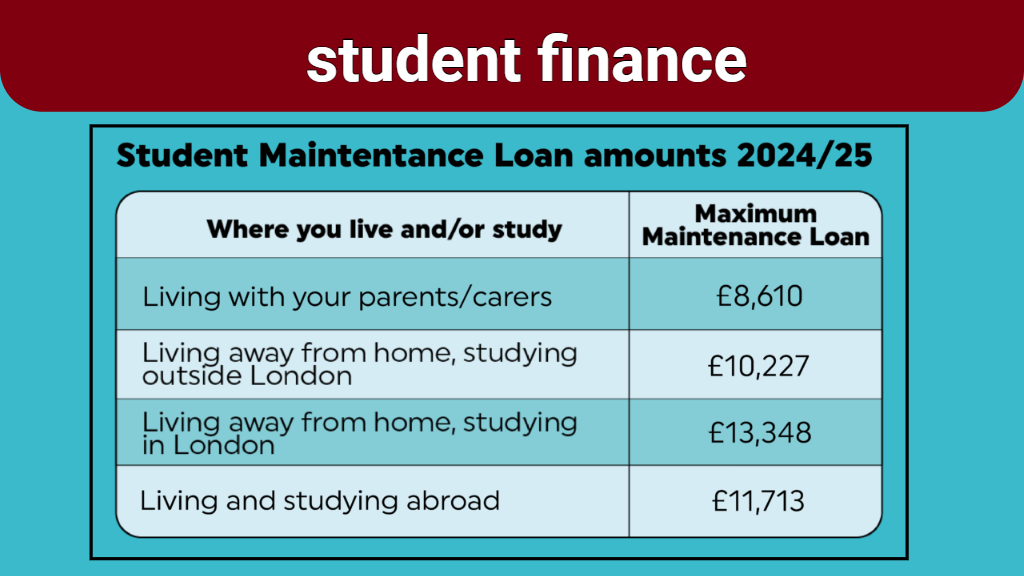Navigating the world of student finance can be daunting, but securing the right funding is crucial for your educational journey.

This comprehensive guide will walk you through the various options available for student finance, from loans and grants to scholarships and bursaries. By understanding these financial tools, you can make informed decisions and focus on your studies without the stress of financial uncertainty.
What is Student Finance?
Student finance encompasses a range of financial support options available to students pursuing higher education. This support can come in the form of loans, grants, scholarships, and bursaries, helping to cover tuition fees, living expenses, and other educational costs.
Types of Student Finance
- Student Loans:
- Tuition Fee Loans: Cover the cost of your course fees, paid directly to your educational institution.
- Maintenance Loans: Help with living costs such as accommodation, food, and travel. The amount you receive depends on your household income and where you live and study.
- Grants: Unlike loans, grants do not need to be repaid. They are usually awarded based on financial need, specific circumstances, or academic merit.
- Scholarships: Scholarships are financial awards given to students based on academic achievement, talent, or other criteria set by the awarding body. They do not need to be repaid.
- Bursaries: Bursaries are similar to grants and are often provided to students based on financial need, specific circumstances, or to support certain fields of study. These also do not need to be repaid.
How to Apply for Student Finance

- Research: Start by researching the various types of student finance available. Government websites, university financial aid offices, and scholarship databases are good places to begin.
- Prepare Documents: Gather necessary documents such as proof of identity, household income details, and academic transcripts.
- Submit Applications:
- For Loans and Grants: Apply through your country’s student finance authority (e.g., Student Finance England, FAFSA in the USA).
- For Scholarships and Bursaries: Follow the specific application instructions provided by the awarding body.
- Meet Deadlines: Ensure you submit your applications before the deadlines. Late applications may result in reduced funding or missed opportunities.
Repaying Student Loans
- Repayment Terms: Student loan repayment terms vary by country. Generally, repayments begin once you earn above a certain income threshold.
- Interest Rates: Interest rates on student loans can vary, so it’s important to understand how they are calculated and how they affect your repayments.
- Repayment Plans: Many countries offer various repayment plans to suit different financial situations. Explore options such as income-driven repayment plans or loan forgiveness programs if available.
Maximizing Your Student Finance
- Budgeting: Create a budget to manage your finances effectively. Track your income and expenses to ensure you live within your means.
- Part-Time Work: Consider part-time work or internships to supplement your income. Many universities offer work-study programs that allow you to earn money while gaining valuable experience.
- Financial Advice: Seek financial advice from university advisors or financial aid counselors. They can provide guidance on managing your money and making the most of your student finance.
Conclusion
Understanding and managing student finance is essential for a successful educational journey. By exploring all available options, applying early, and managing your finances wisely, you can focus on your studies and achieve your academic goals without the burden of financial stress.
For more detailed information and to start your application process, visit your local student finance authority’s website.
FAQs
1. What is the difference between a grant and a loan? Grants do not need to be repaid, whereas loans must be repaid with interest after you graduate and start earning above a certain income threshold.
2. Can international students apply for student finance? Eligibility for student finance varies by country and institution. International students should check the specific requirements and options available in the country they plan to study in.
3. How can I find scholarships? Scholarship databases, university financial aid offices, and online searches are excellent resources for finding scholarships relevant to your field of study and personal circumstances.
4. What happens if I can’t repay my student loans? Many countries offer income-driven repayment plans or deferment options if you are unable to make repayments. Contact your loan servicer to discuss your options.
Pet Insurance for Dogs and Cats: Protecting Your Furry Friends
Comprehensive Guide to John Lewis Pet Insurance: Protecting Your Furry Friends